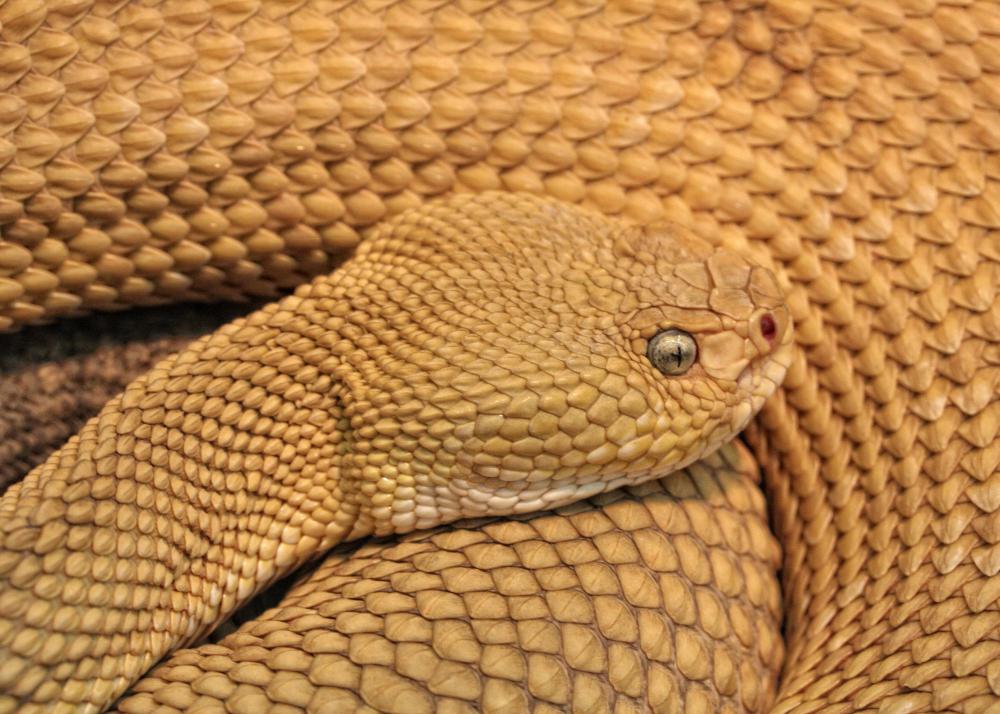At WiseGEEK, we're committed to delivering accurate, trustworthy information. Our expert-authored content is rigorously fact-checked and sourced from credible authorities. Discover how we uphold the highest standards in providing you with reliable knowledge.
What are the Different Snake Bite Symptoms?
Snake bites are scary and potentially serious injuries. Without prompt medical attention, some bites from poisonous snakes can result in severe breathing difficulties, partial paralysis, shock, and possibly death. The nature and severity of snake bite symptoms that a person experiences depends on the type of snake, but most bites share at least some key characteristics. A snake bite victim is likely to have radiating pain from the site of the puncture, nausea, vomiting, and trouble breathing. A bite can also cause a sharp rise in pulse, a drop in blood pressure, weakness, and blurred vision as toxins spread throughout the bloodstream.
Most snake bites are immediately painful. It is common to bleed from the puncture wounds as the surrounding skin quickly turns red, tender, and swollen. The area may tingle and burn as well, and eventually turn numb as underlying nerve cells are paralyzed by venom. A combination of the venom and the psychological response to being bitten by a snake can cause a person to become very nauseous and lightheaded. He or she may start slurring words and have trouble seeing. Fainting also is possible as lightheadedness and other initial snake bite symptoms worsen.

Snakes with highly toxic venom, including vipers and cobras, can elicit immediate problems with the central nervous system. An individual may lose the ability to coordinate muscle movements in his or her limbs because of nerve involvement. Major snake bite symptoms such as limb paralysis and muscle tissue death can set in within hours in some cases. The muscles and nerves in the chest, throat, and face can also be affected, which can lead to painful tightness, swelling, and extreme breathing difficulties. A person may turn pale and lose consciousness if he or she is not able to control breathing.

A non-venomous snake bite can cause symptoms as well, though they are rarely as life-threatening as bites from venomous creatures. The puncture site is still likely to be painful, swollen, red, and tender. There is little immediate danger of other non-venomous snake bite symptoms, though an untreated wound can become infected with bacteria and lead to a rash, muscle aches, and fatigue. Since it is not always possible to determine whether or not a snake is venomous, it is essential to seek professional medical care whenever a bite occurs. Doctors can assess snake bite symptoms and provide the appropriate medical care to prevent major health complications.
AS FEATURED ON:
AS FEATURED ON:













Discussion Comments
About how much time would it take for venom to affect the body of a 11 year old boy who is bitten by a cobra?
Post your comments